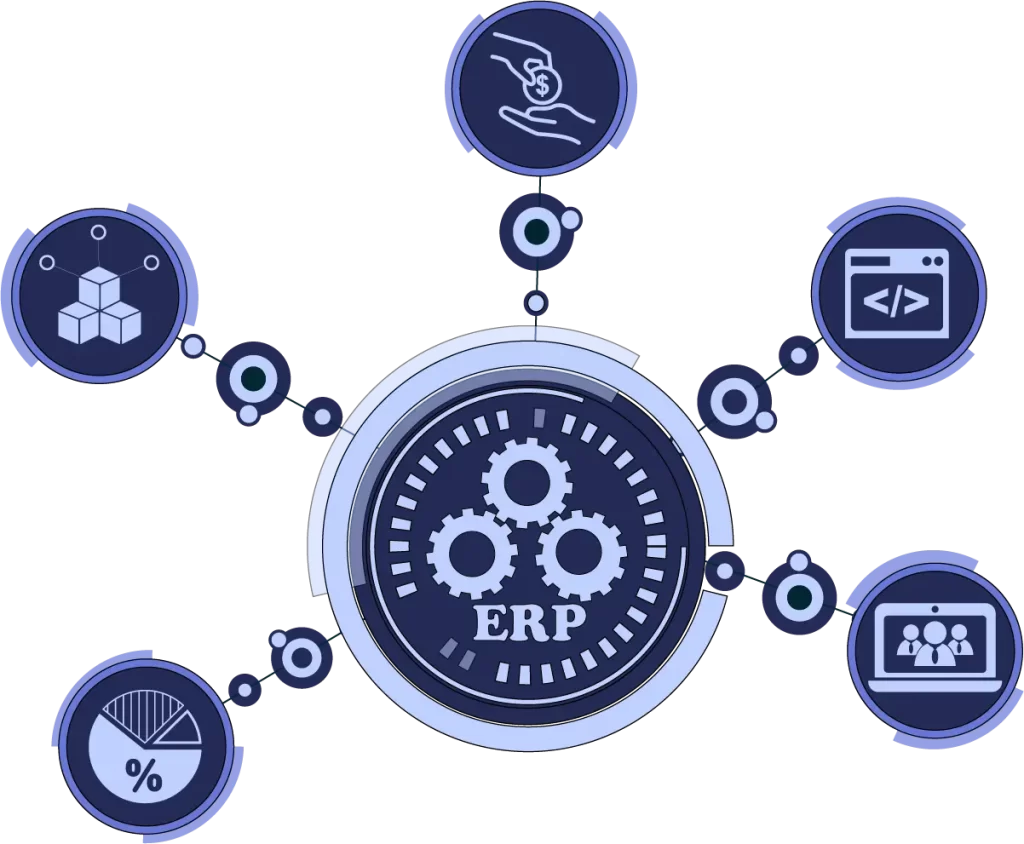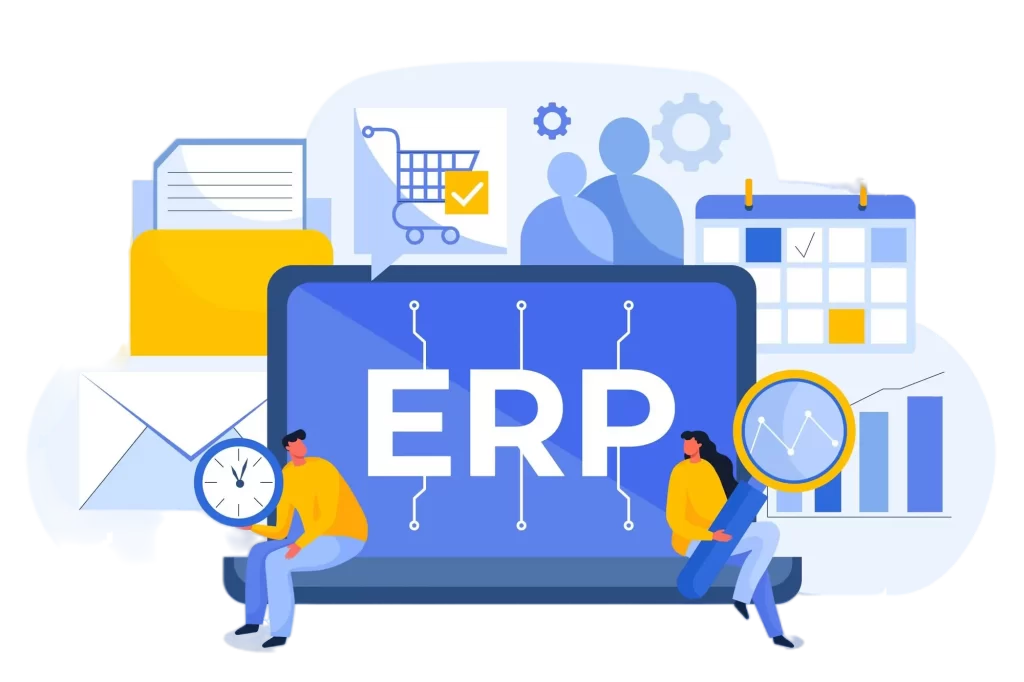Enterprise Resource Planning (ERP) systems integrate core business processes into a unified platform, enabling organizations to manage resources efficiently. By consolidating data and automating tasks, ERP enhances operational efficiency, reduces costs, and facilitates informed decision-making.


Complexities Addressed by ERP
Implementing and managing diverse business processes manually can lead to inefficiencies, data silos, and increased operational costs. ERP solutions streamline these complexities by:
Benefits of ERP Automation
Tools of ERP Automation
ERP Applications in Specific Sectors
Each of our ERP solutions leverages cutting-edge technologies and industry best practices to meet the specific needs of its sector. By combining powerful development tools with deep industry expertise, we deliver robust, scalable ERP solutions that drive efficiency, reduce costs, and optimize business processes.









